3 minutes
Agent Tesla - Reverse Engineering Spyware
Table of Contents
| Section | Description |
|---|---|
| Preface | An introduction to the context and purpose of the analysis, including tools and objectives. |
| Analysis | Initial inspection of the binary, such as examining file metadata, strings, and imports to gather a high-level understanding. In-depth dissection of the binary, including reverse engineering with disassemblers, examining code flow, and detecting obfuscation techniques. |
| Conclusion | A summary of findings, including identified indicators of compromise (IOCs), behaviors, and next steps for further analysis. |
Preface
Agent Tesla a Spyware acting as a game and stealing credentials. This sample is packed and has to be unpacked first in order to see the content. Uts’s malware developped in C#
Analysis
In this section I used a simple tool named pe studio to get a general understanding of the loader.
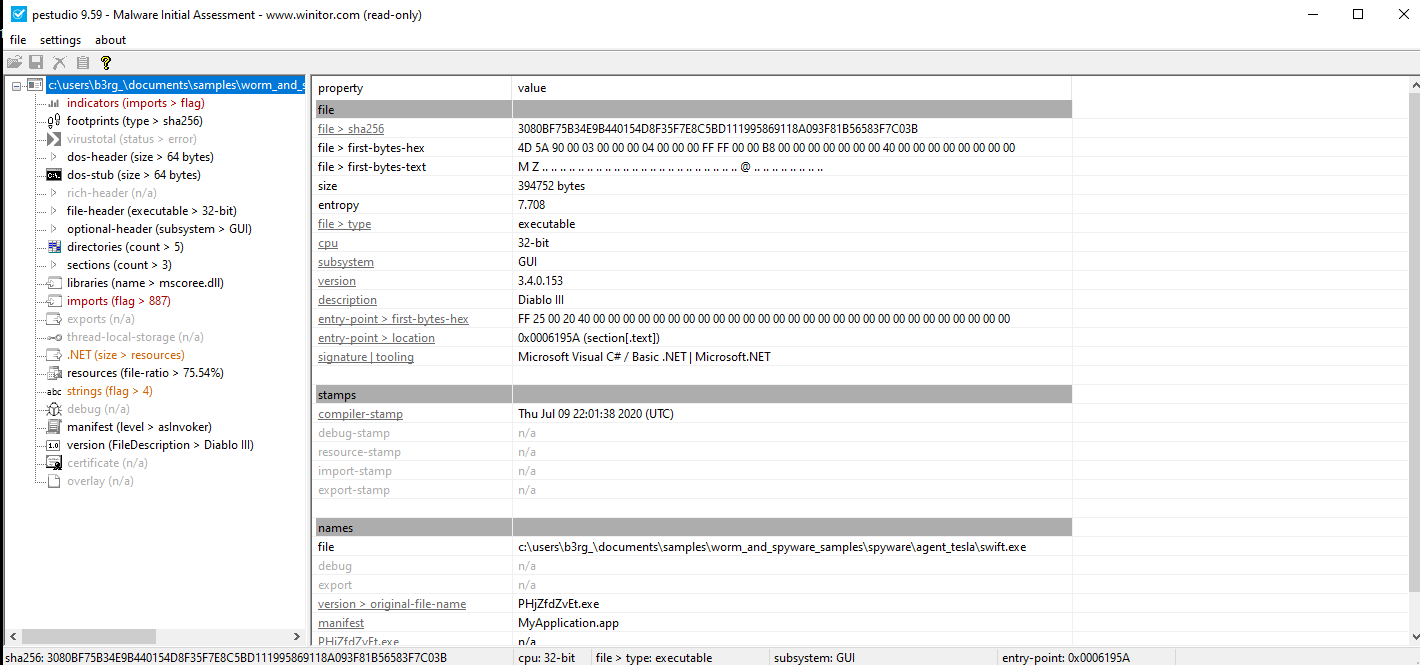
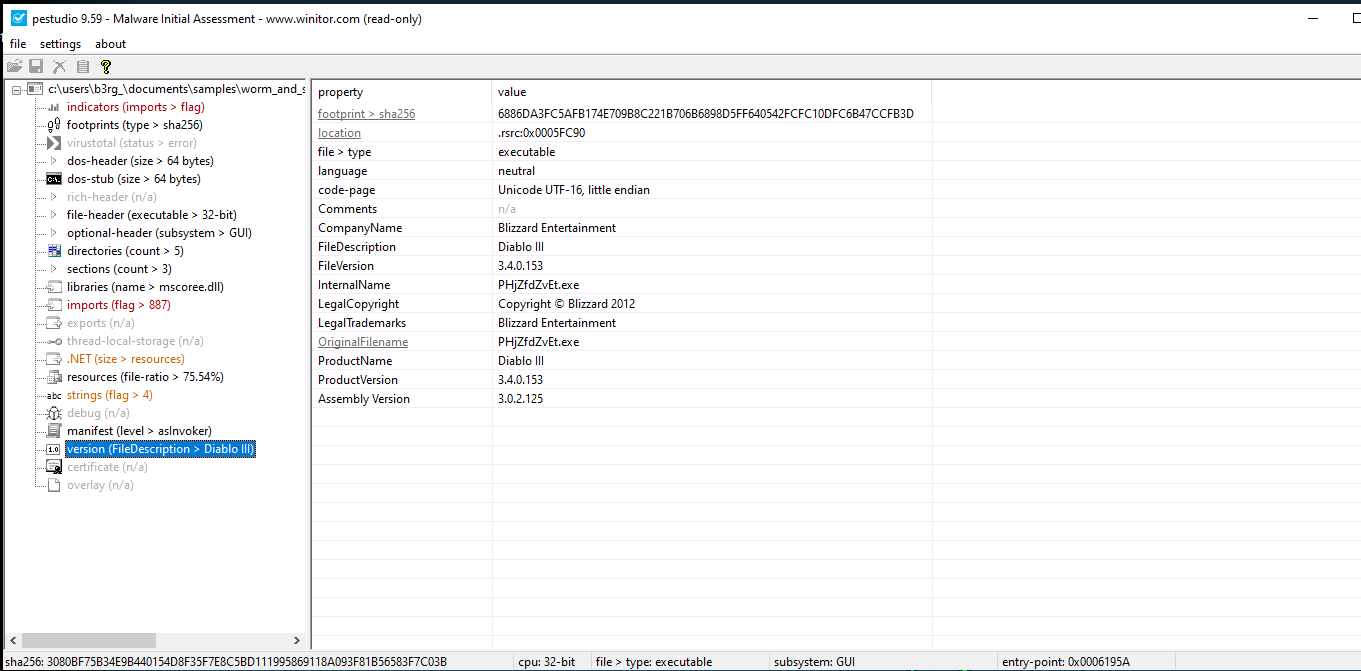
- We can see that that this sample has probably been written in
C#and we can see that it’s trying to make us believe that it’s a game by the descriptionDiablo 3, I don’t play video games but i heard about that particular video game - There’s high entropy being detected, so it’s probably packed
To Unpack it I used x32dbg and I put a breakpoint on WriteProcessMemory
- So
agent teslawill decrypt the encrypted payload into the memory then it will create the agent process and then dump the unpacked data in the child process

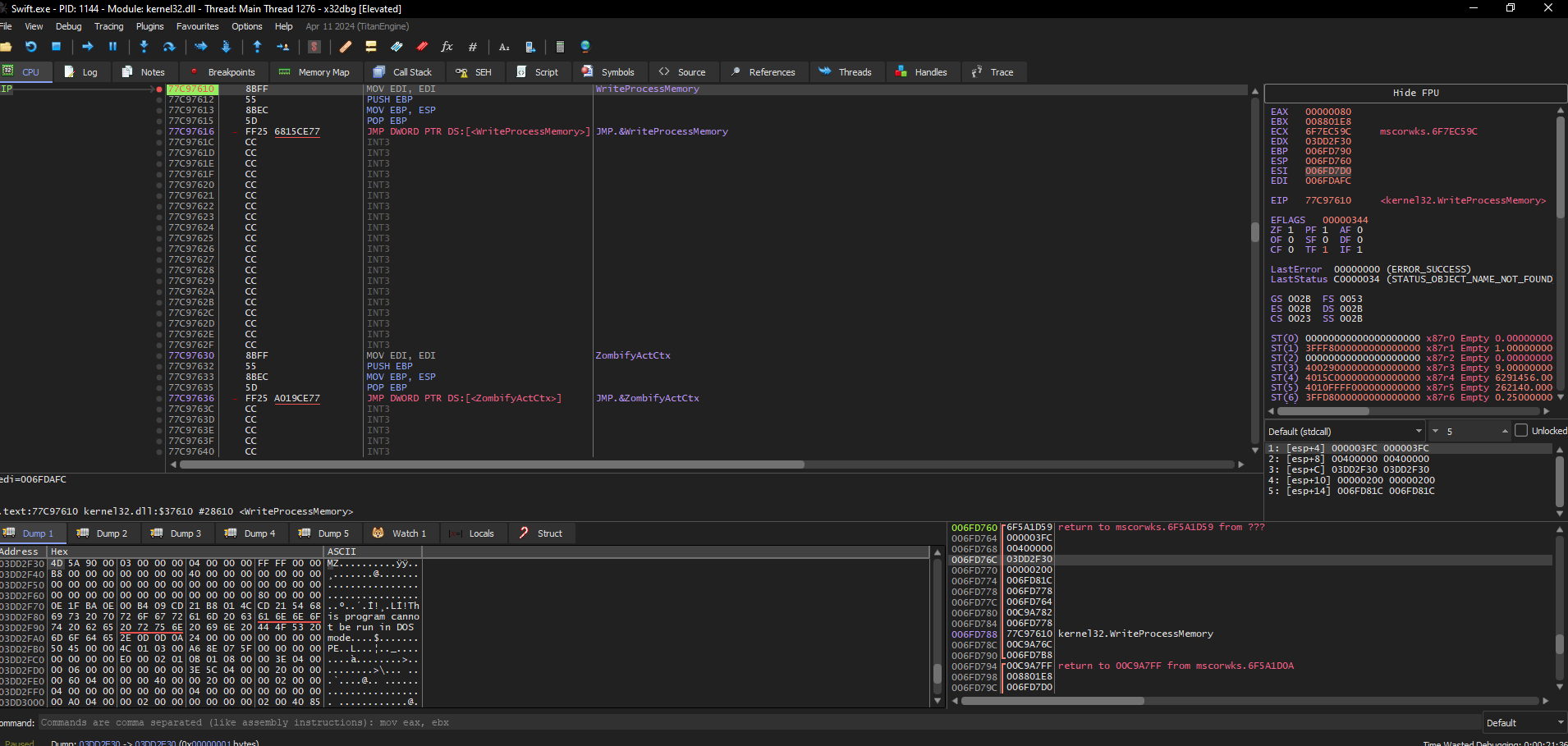
[!info] When a malware create a child process, go to
WriteProcessMemoryto quickly get the unpacked executable
- As you can see in the debugger, by hitting the breakpoint on
WriteProcessMemorywe can find the unpacked executable by following the third argument address in the dump. Some of you will probably ask me why, go to the third argument, well simply because on the documentation we can see that third argument ofWriteProcessMemorycontains thelpBufferwhich is a pointer to the buffer, which in our case represent the unpacked executable that is written in the sub-process that has been created byagent tesla.
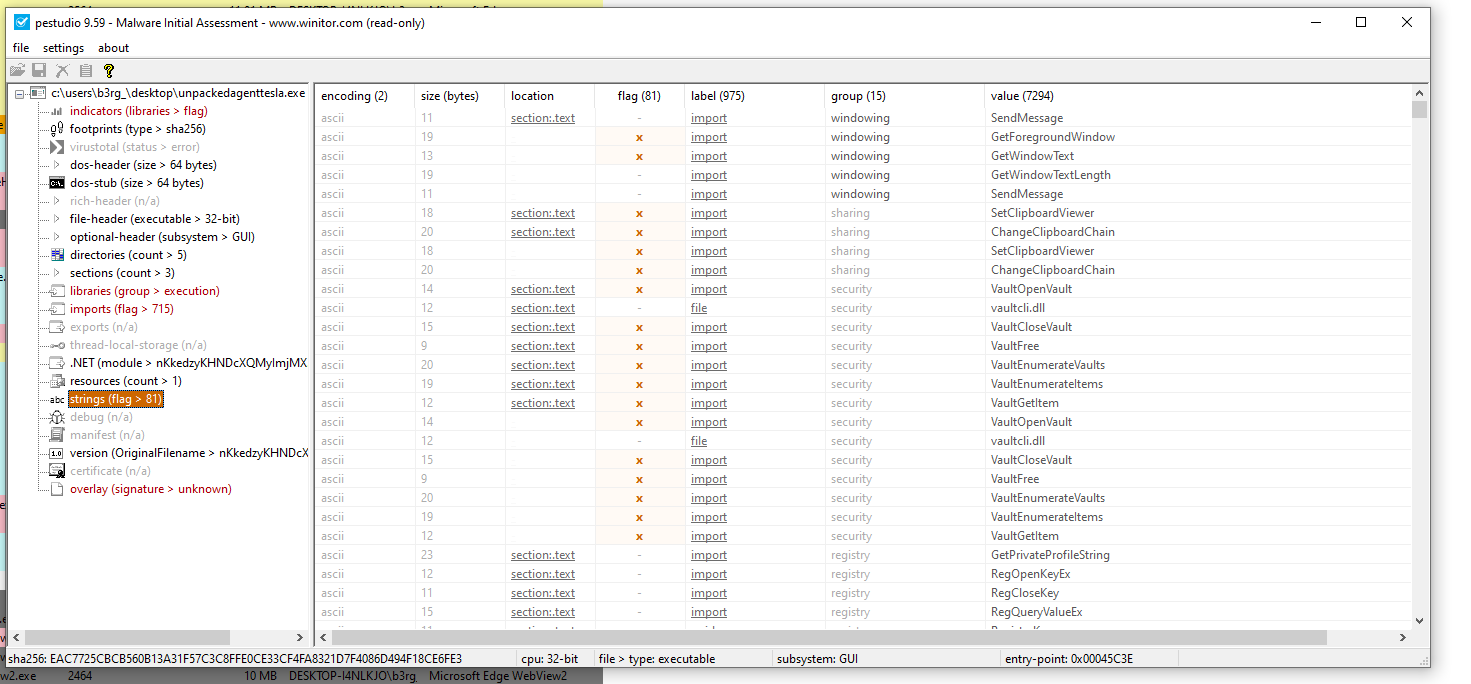
- Based on these strings we can definitely conclude that we’re dealing with an Info Stealer
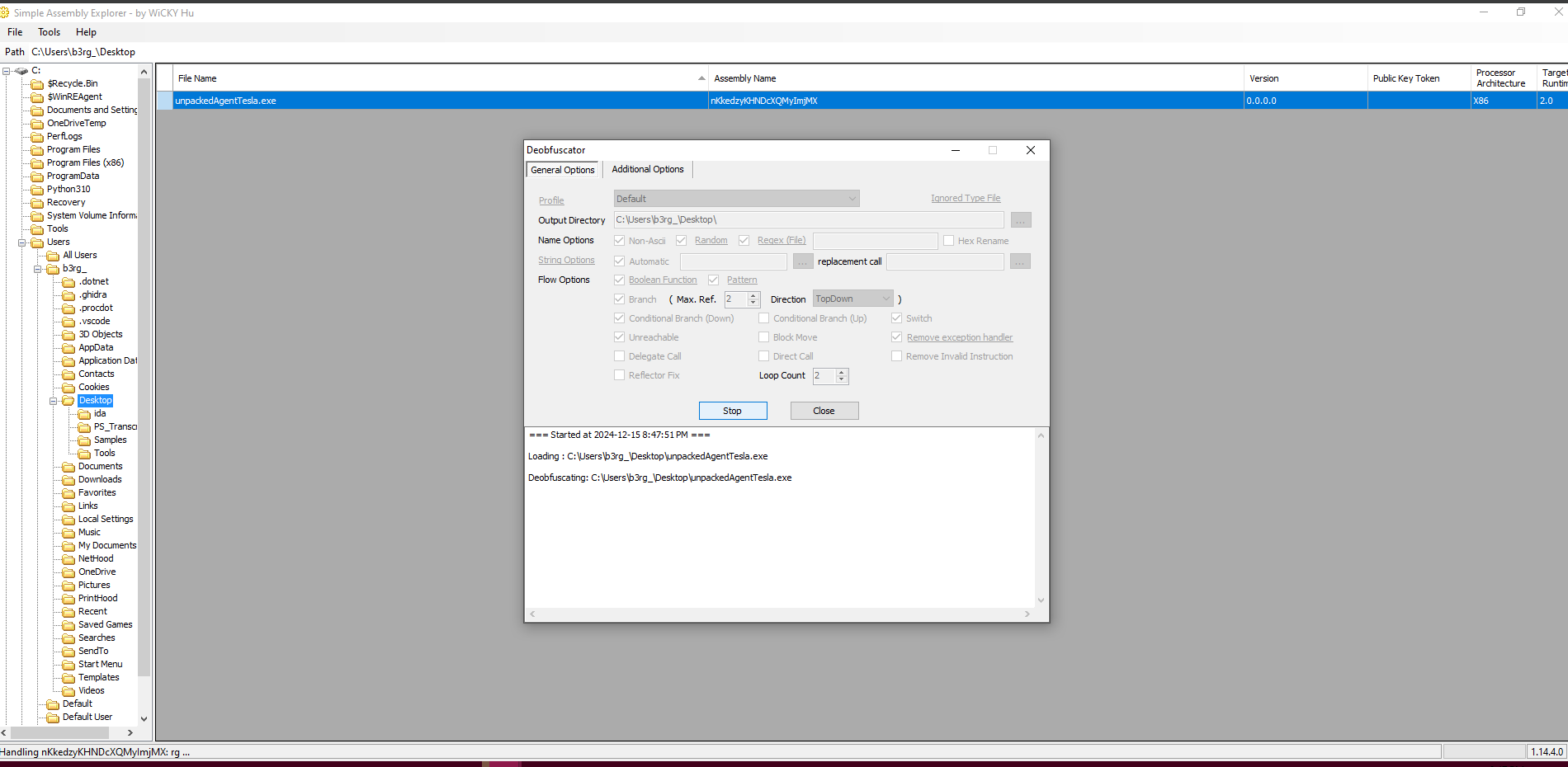
- I’ve put the unpacked executable inside the tool
Simple Assembly Explorerin order to cleaned up most of the obfuscated strings, to ease up my analysis of the program code
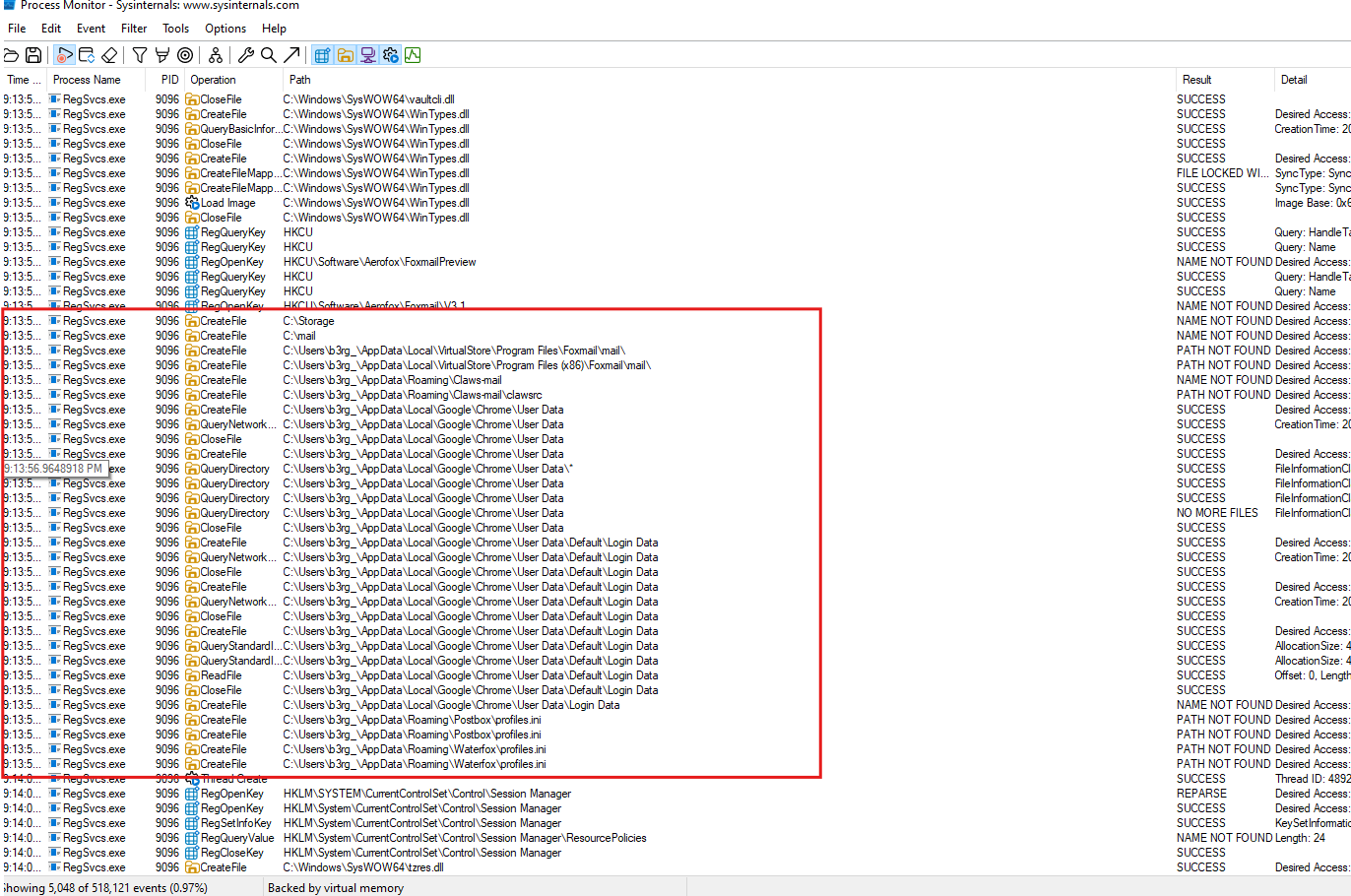

- By Monitoring the
RegSvcs.exeprocess we can see that there’s a lot of operations being performed on my google chrome credentials - We can see it goes on Edge too
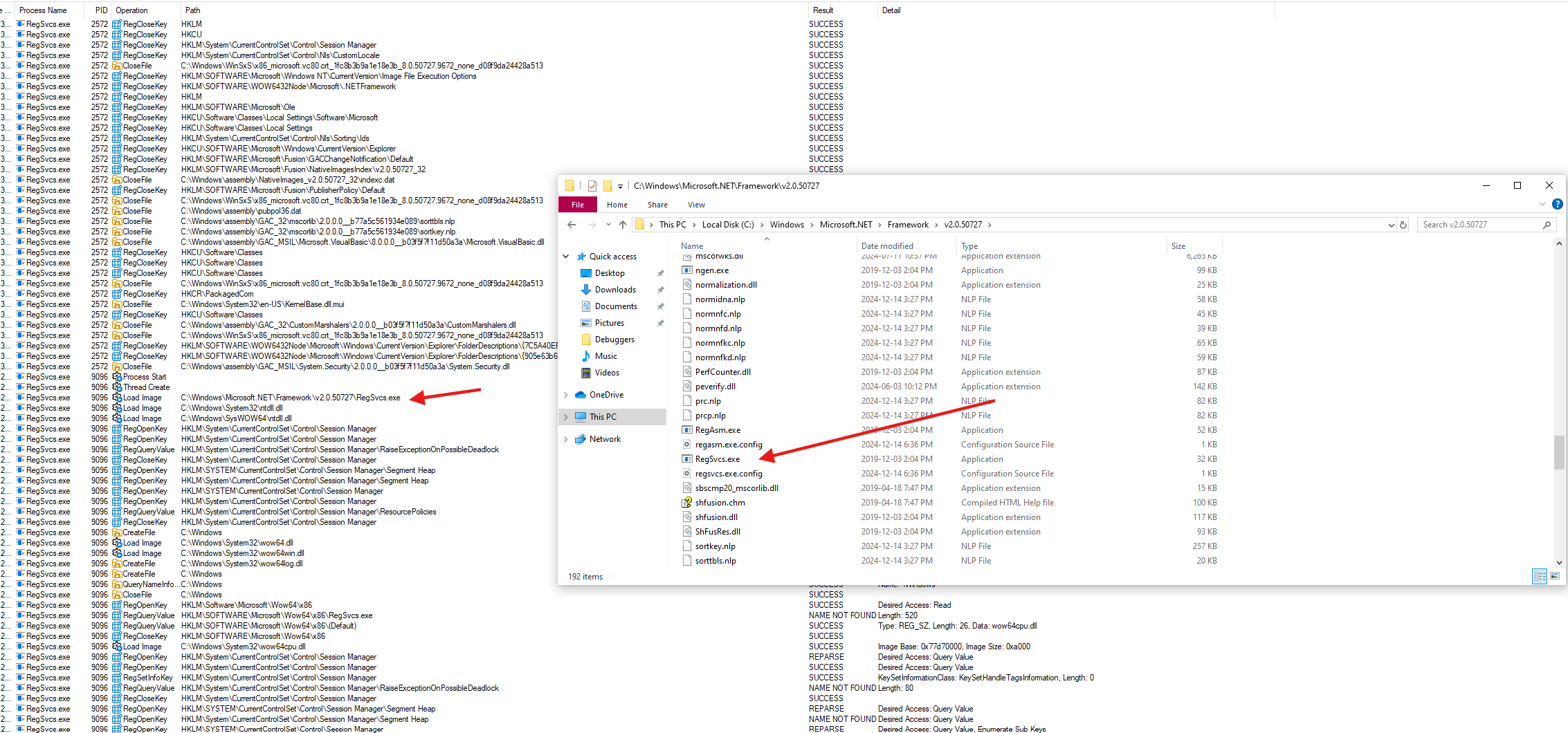
Rules & Signatures
rule Agent_Tesla {
meta:
last_updated = "2024-09-04"
author = "8erg"
description = "Yara detection rule for Spyware Agent Tesla"
strings:
$exe_name = "PHjZfdZvEt.exe"
condition:
$exe_name
}
Conclusion
I really enjoyed this one, it was my first time analyzing a spyware. I was able to understand a recurrent feature with some malware that creates a child process. Might do some more spyware, maybe some on android to see the differences. Well, until next time!
476 Words
2024-11-03 16:00